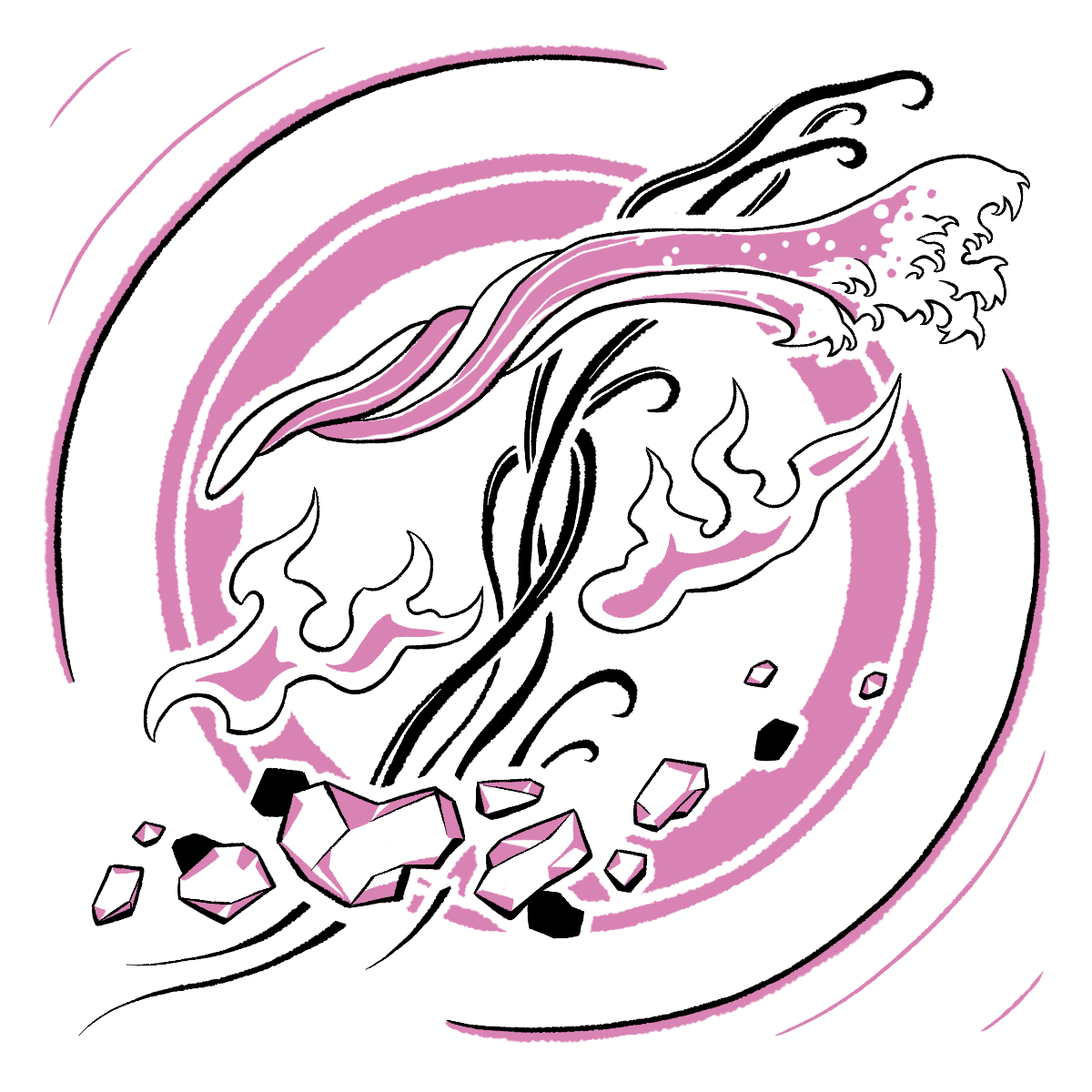
Efreeti
If the efreeti dies, its body disintegrates in a flash of fire and puff of smoke, leaving behind only equipment the djinni was wearing or carrying.
Actions
Variants
Genies have a variety of magical capabilities, including spells. A few have even greater powers that allow them to alter their appearance or the nature of reality.
Disguises. Some genies can veil themselves in illusion to pass as other similarly shaped creatures. Such genies can innately cast the disguise self spell at will, often with a longer duration than is normal for that spell. Mightier genies can cast the true polymorph spell one to three times per day, possibly with a longer duration than normal. Such genies can change only their own shape, but a rare few can use the spell on other creatures and objects as well.
Wishes. The genie power to grant wishes is legendary among mortals. Only the most potent genies, such as those among the nobility, can do so. A particular genie that has this power can grant one to three wishes to a creature that isn’t a genie. Once a genie has granted its limit of wishes, it can’t grant wishes again for some amount of time (usually 1 year). and cosmic law dictates that the same genie can expend its limit of wishes on a specific creature only once in that creature’s existence.
To be granted a wish, a creature within 60 feet of the genie states a desired effect to it. The genie can then cast the wish spell on the creature’s behalf to bring about the effect. Depending on the genie’s nature, the genie might try to pervert the intent of the wish by exploiting the wish’s poor wording. The perversion of the wording is usually crafted to be to the genie’s benefit.
Genies
When a sentient soul is able to bind with primordial matter in one of the elemental planes, as well as manage to manifest a form more complex than that of a common elemental, a rare genie is made. Unlike elementals, genies have biological bodies composed of more than just a congealed element, and are often quite muscular and colorful in comparison to most humanoids on the material plane.
While the formation of a genie requires an unattached soul that once belonged to another living creature, the genie itself is a brand new person built out of their unique circumstances in the elemental planes. The soul is itself reborn, used simply as the building blocks that might contribute a few details to the genie’s personality and physique.
A genie has a specific name depending on which element they are connected to to help understand their powers more individually. Dao, hailing from the Elemental Plane of Earth, have mastery over said domain and are the most likely of any genie to be found on the material plane; Djinn come from the Elemental Plane of Air; Efreet, of the Elemental Plane of Fire—made of congealed flames and metals—are most often confused for other creatures such as devils and demons; and Marids come from the Elemental Plane of Water. A few other types remain, though they are weaker and even less common, as they do not have strong ties to one of the four primordial elements.
The union of a genie and a mortal humanoid is not unknown, and this union can bring about a child that shares some of the elemental traits of their genie parent. These children are known as genasi.
Efreeti
Not yet described
Known Relationships
Duplication and Templates
Want to make a new design starting from 'Efreeti'? Want to apply a template?